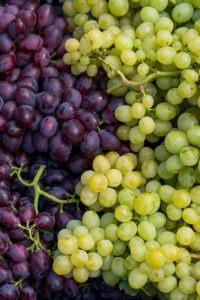Table grapes can be one of the winners of climate change
While fruit growing is becoming more and more unpredictable due to hectic weather conditions, the cultivation of dessert grapes poses fewer environmental risks, and its ecological adaptability is also favorable. According to the National Chamber of Agriculture and the Hungarian Fruit and Vegetable Association (FruitVeB), we also need to overcome economic and market difficulties in order to develop the sector.

Although grape growing has traditionally enjoyed great popularity in our country, farmers continue to cultivate wine grapes in the largest area. The main reason for this is that our country is located on the northern border of grape growing. However, due to the constantly changing climatic conditions, the cultivation of table grapes intended for eating purposes may gain more and more space.
In our country, table grapes are currently grown on about 370 hectares, the three most important growing areas are Bács-Kiskun county, Heves county and Tolna county. At the same time, a larger quantity of varieties classified as wine grapes, but also suitable for fresh consumption, is used for food purposes. Thus, the vineyard area used for food purposes amounts to approximately 900-1,000 hectares per year. But this is classically only a forced situation, because table grapes intended for eating should be provided from plantations of varieties bred for this purpose. The amount produced annually exceeded 10,000 tons ten years ago, but in recent years it has typically been between 5,000 and 10,000 tons. Domestic consumption is 20-25 thousand tons, so we need to import 10-12 thousand tons every year, so there is something to replace with domestic produce.
However, according to the National Chamber of Agriculture and the Hungarian Fruit and Vegetable Association (FruitVeB), this area may increase in the future. All of this can be encouraged by the support opportunities and horticultural plantation planting tenders available in the case of table grapes.
Related news
János Lázár: rural development is needed, not agricultural policy
🎧 Hallgasd a cikket: Lejátszás Szünet Folytatás Leállítás Nyelv: Auto…
Read more >Related news
The Store of the Future opens again at the SIRHA Budapest exhibition! (Part 3)
🎧 Hallgasd a cikket: Lejátszás Szünet Folytatás Leállítás Nyelv: Auto…
Read more >Amikor a megszámlálhatatlan megszámlálhatóvá válik
🎧 Hallgasd a cikket: Lejátszás Szünet Folytatás Leállítás Nyelv: Auto…
Read more >New country director at the helm of JYSK Hungary
🎧 Hallgasd a cikket: Lejátszás Szünet Folytatás Leállítás Nyelv: Auto…
Read more >








